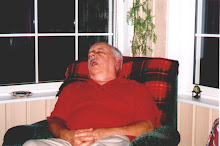Hillary certainly took her good old time endorsing Obama. On the Tuesday night that he clinched the nomination, she announced "I will not make a decision tonight", to the wild cheers of her supporters. Decision? What decision? Had it not already been made?
Obviously, she wanted to bargain. There were hints that she would accept the Vice-Presidential nomination. No doubt she had a shopping list, but did she have the leverage? As for a running mate, Obama would be a fool to even consider Hillary. Can you imagine trying to run the country with the two Clintons hanging in the White House? And after the somewhat sleazy campaign she ran? So much for the dream team idea. More like a nightmare.
In one of her speeches she had referred to Bobby Kennedy. Immediately some people jumped to the conclusion that she was referring to the assassination in an attempt to imply that if Obama was gunned down, she could step smartly in, or maybe that Obama would not be a good choice because of the possibility. I don't really think she meant that, but who knows? There are so many Aryan Nation, white supremacist crazies out there that it is a distinct possibility. Gunfire normally comes from the Right. Has an attempt ever been made on a right-wing Republican President? The exception is Reagan, but it was not political - the whacko Hinckley was trying to impress Jody Foster and he had previously stalked Jimmy Carter.
Finally, four days later, she gave her unqualified support to Obama. She had little option and I don't think he really needed it.
So, assuming he wins the Presidency, what policies will he pursue? He hasn't given many clues. How will he end the Iraq obscenity? What will he do about Big Oil? How about the food crisis? Carbon emissions? What about health care? What about New Orleans? The list goes on. Indeed, how much traction will he have on any of these issues? It will depend greatly on a strong Democratic Congress, and Congress can be ornery. Good luck, Barack.

